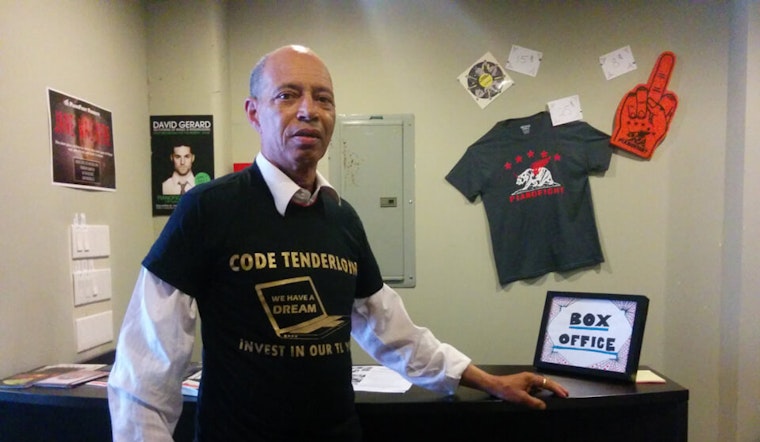
If you don't see him walking the streets of the Tenderloin with tech workers and tourists in tow, hanging on his every word, there's a good chance you'll find Del Seymour at PianoFight quizzing a Tenderloin resident on the proper way to greet a hiring manager.
Through his latest project, Code Tenderloin, Seymour has had seven Tenderloin residents hired at nearby companies last month, two hired earlier this week and two intern candidates expected to receive offers in entry-level tech jobs by the end of this week.
Despite the word "code" in the title, this is not another hacker school. "We get the people walking past this window ready for job interviews,” Seymour said, pointing toward the corner of Turk and Taylor. “The hardest part of a job is getting hired. So we’re dealing with the hardest part of their journey.”
The ultimate goal is to place candidates in the tech industry, but right now no industry is being ignored. “Any business here, present in the Tenderloin, we want to be able to serve them with competent candidates for their jobs,” Seymour said.
While the one-on-one trainings are tailored for each candidate, the basic curriculum includes three hours a day, three days a week on everything a candidate needs to know and do to ace a job interview.
"We spend one day on how to enter that door," Seymour explains. "Three hours on how to enter that door when you’re going through HR. You can enter that door arrogantly or confident. HR guy, he knows the difference. And we’re teaching them how to convey that difference to the guy."
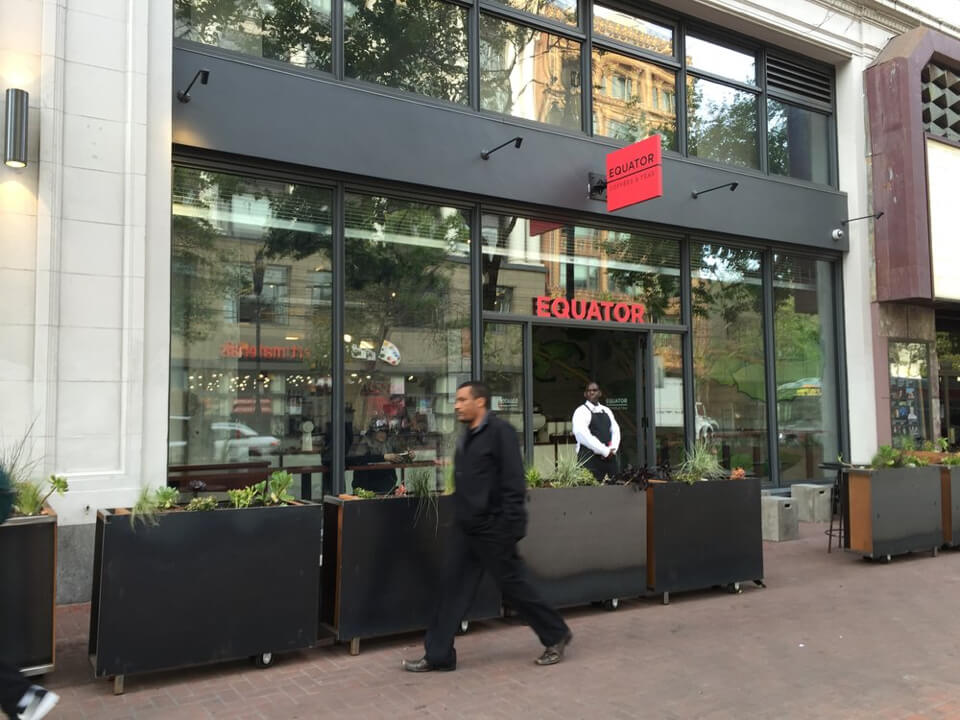
Equator Coffee, one of the many businesses Code Tenderloin has placed a candidate. (Photo: Ed U. / Yelp)
Another lesson Seymour imparts on his students is "learning the traps from the interviewer," Seymour said. "For example, I'm a Code Tenderloin applicant and you're interviewing me. You may start off by saying, 'Hey Del, are you a Warriors fan?' As a Code Tenderloin applicant: 'Ma'am, I'm not here to talk about the Warriors. I'm here to talk about Twitter. Can we bring it back? And tomorrow, after I"m hired, then we can talk about the Warriors.'"
"We need to let people know we're focused on what we're doing," Seymour added.
To ensure his candidates can focus on the task at hand, Code Tenderloin helps cover financial burdens that often haunt struggling job hunters.
“Whatever is going on in your life financially, I cover that out of my pocket. You need a bus pass, you need a cell phone paid, you need childcare ... We give you brand new clothes, ‘cause I want to make you a new person. I can’t make you a new person with used clothes.”
Zendesk is helping with childcare. Gap and a few other retailers have provided clothing. And, pulling from his own savings account, Seymour has paid rent for candidates twice.
“I don’t want no stress on interview day and the first couple of weeks on the job 'cause you gonna show it to the boss. And he’s thinking something else is going on,” Seymour explained. “And there is something going on. You know when you get home the landlord gonna be standing there. So I don’t want that. That’s how we get left out of the job market.”
Seymour also prepares candidates for common cultural barriers, like how to navigate the regular 'musical chairs' that comes along with unassigned seating, respecting personal space in an open office without seeming anti-social and understanding why the team a few desks over is drinking at 9am.
"Just little small things like that we need to do because the tech community is different," he noted.

The Twitter building after dark. (Photo: Davide D'Amico / flickr)
While job opportunities in and around the Tenderloin are plentiful, finding candidates ready to prepare for the workforce isn't easy, Seymour said. "You go through 100 people to get three people."
So, he's willing to admit he's "cheating, or whatever you want to call it" and working with existing neighborhood programs — like St. Anthony's Recovery Program, Glide's Women's Center, Swords to Plowshares and Larkin Street Youth Services — to find candidates who've already taken a step toward improving their lives.
"I don't want no one to think I'm going out here pulling sleeping bags, saying, 'Hey, you want to come work?' I'm not doing that. Not now, maybe later," he said.
Given the one-on-one nature of the program, he can only work with two candidates at a time. "You wouldn't believe — I didn't know either — the amount of time [required]" he said. "I’ll be getting phone calls every hour. ‘Del, what do I do here?’”
But support from local organizations is coming in strong. Kiva recently informed Seymour that his Kiva Zip lending campaign hit its goal faster than any other campaign in the company's history. PianoFight is offering the use of its space pro-bono for the first couple of months until a sponsor can be found to cover the cost. Dolby has donated funds, volunteers to assist mock interviews and positions to fill at its local manufacturing plant and new Market Street cafe. St. Anthony Foundation, KQED, Yammer, Twitter and Zendesk have also contributed resources to the project.
But ultimately, Seymour — who at the age of 67 is a director at Swords to Plowshares, the vice chair of Saint Boniface Church's Gubbio Project and a member of the city's Local Homeless Coordinating Board in addition to running Tenderloin Walking Tours and commuting to and from his home in Fairfield (where he's advocating for a new day center for the homeless) — would like to find an organization with more time and resources to take over the program.
"I just want this to happen," he said.
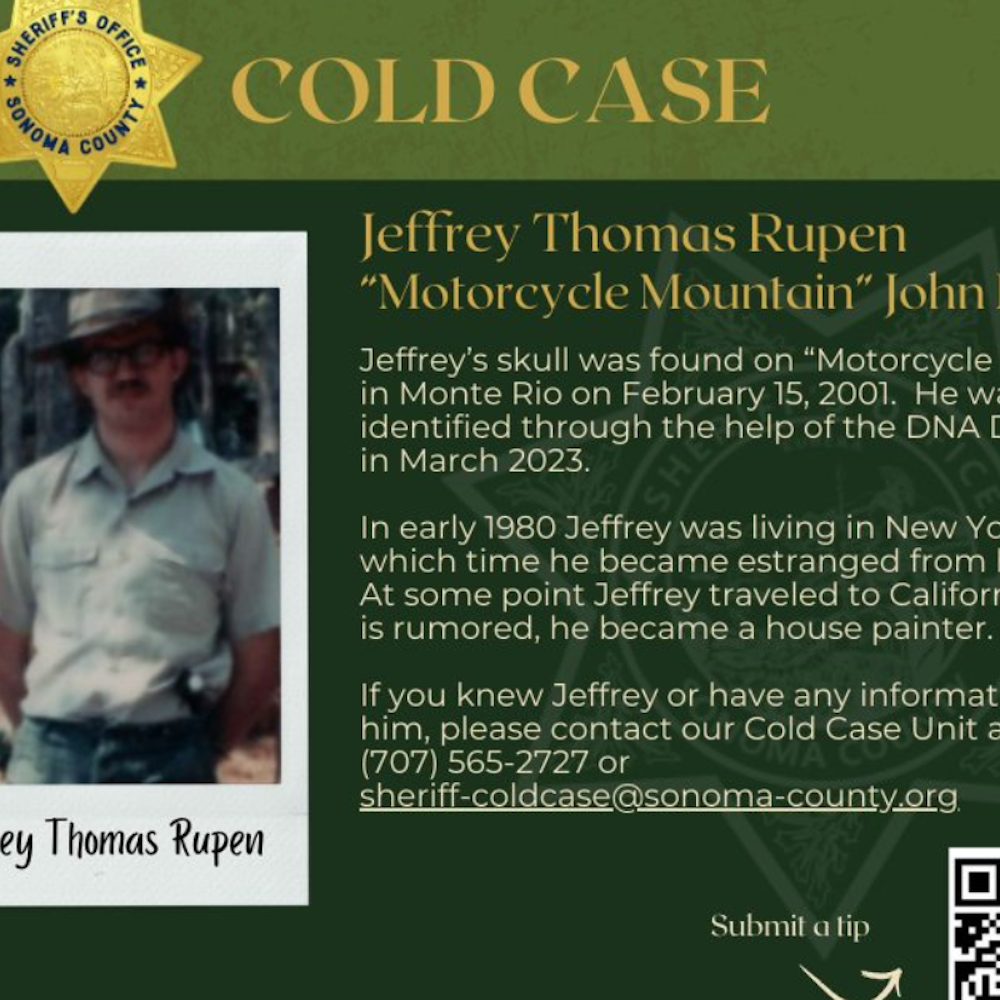
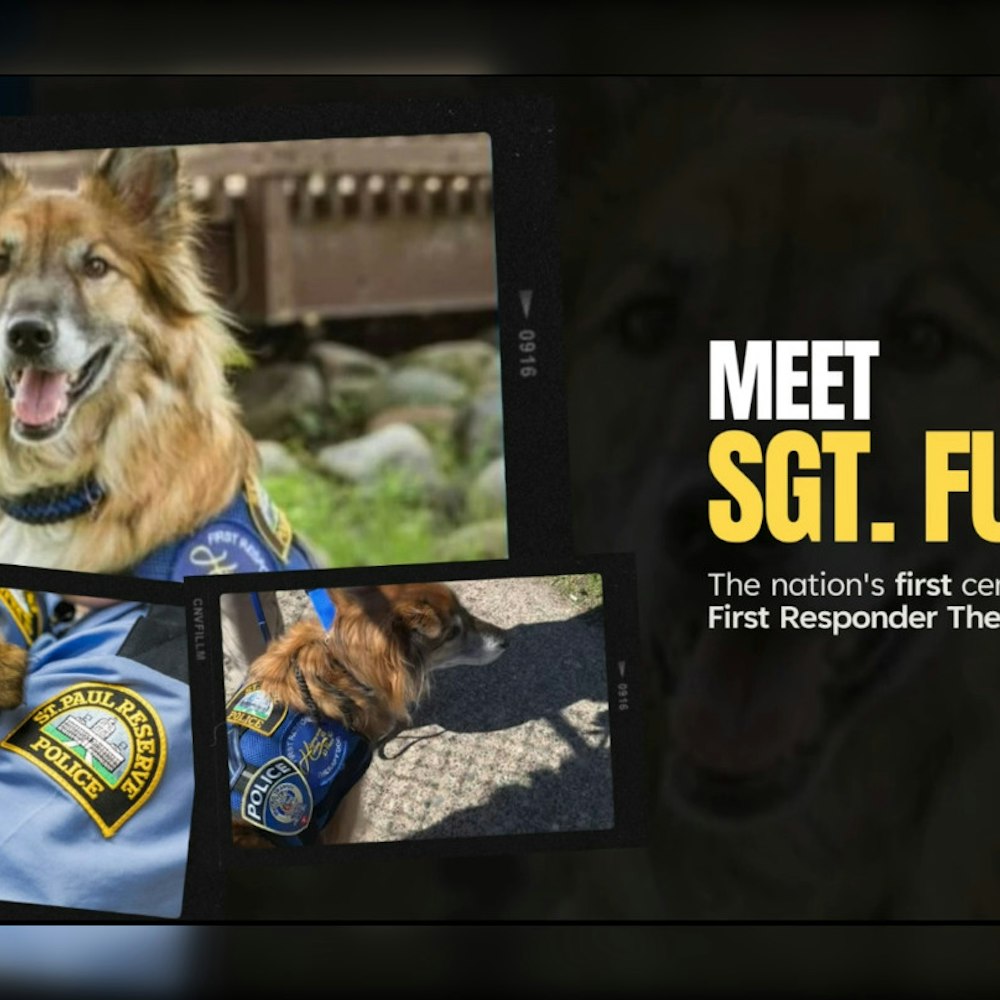



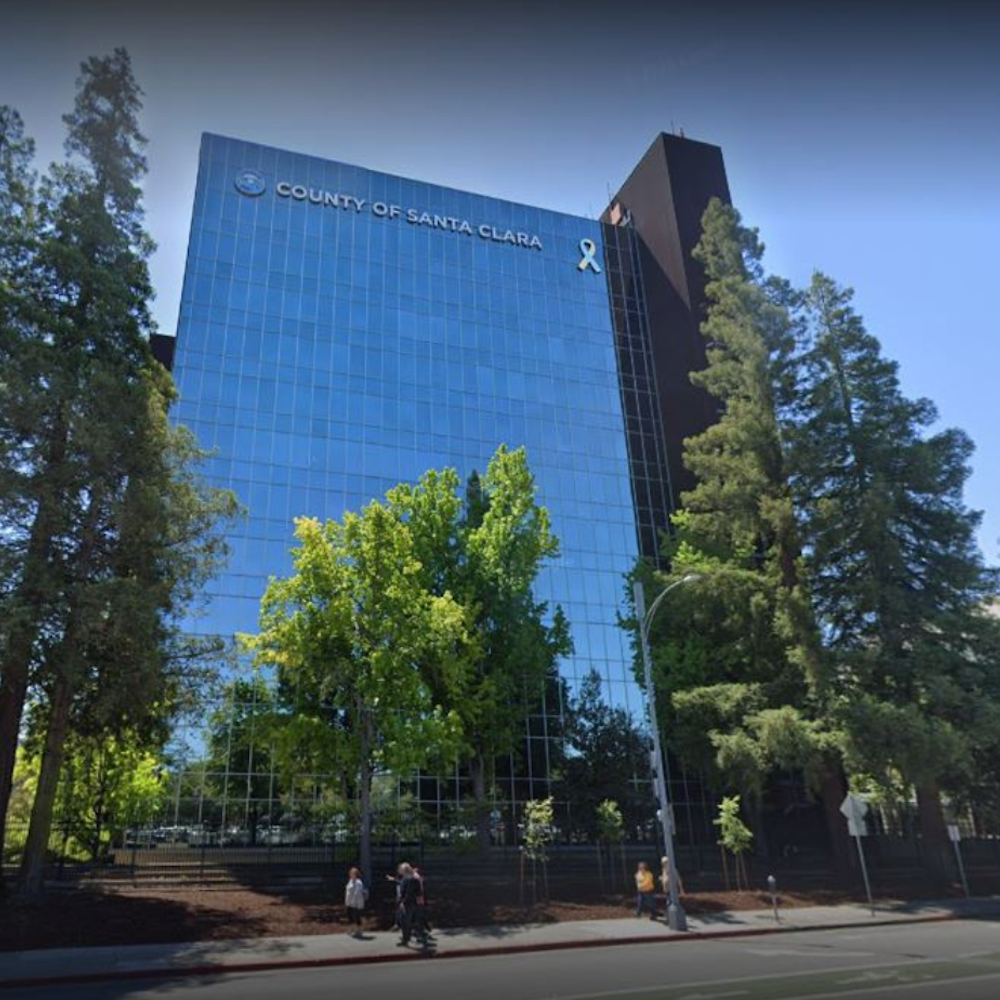


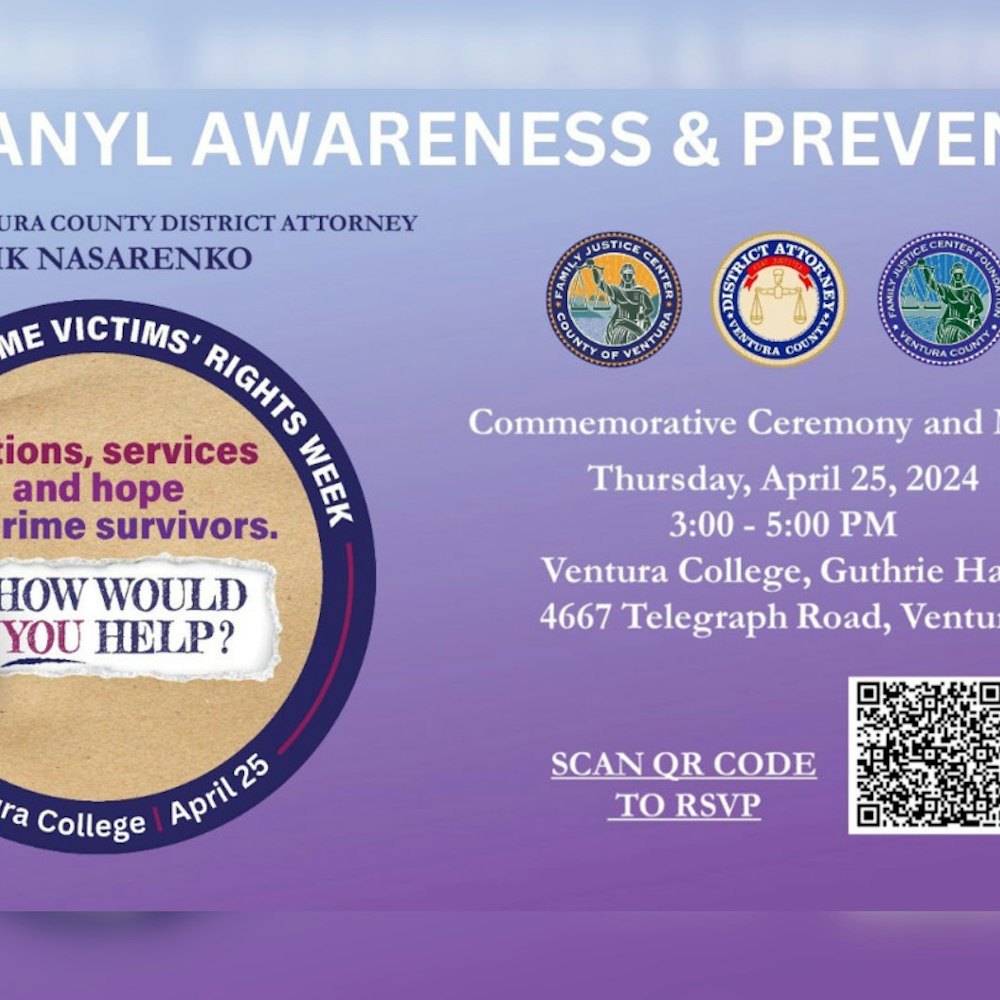
-1.webp?w=1000&h=1000&fit=crop&crop:edges)